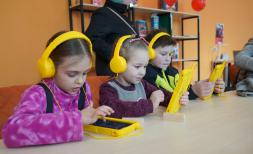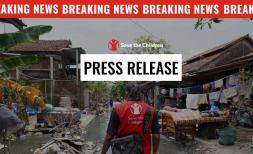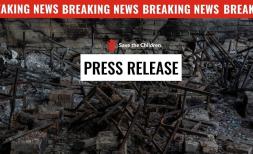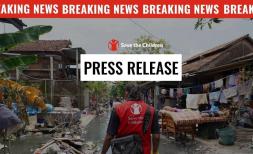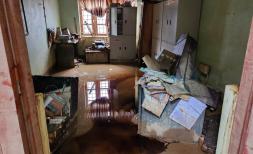“The drought has brought despair. I don’t know what will become of us”: Families on the move as drought takes its toll on Somalia
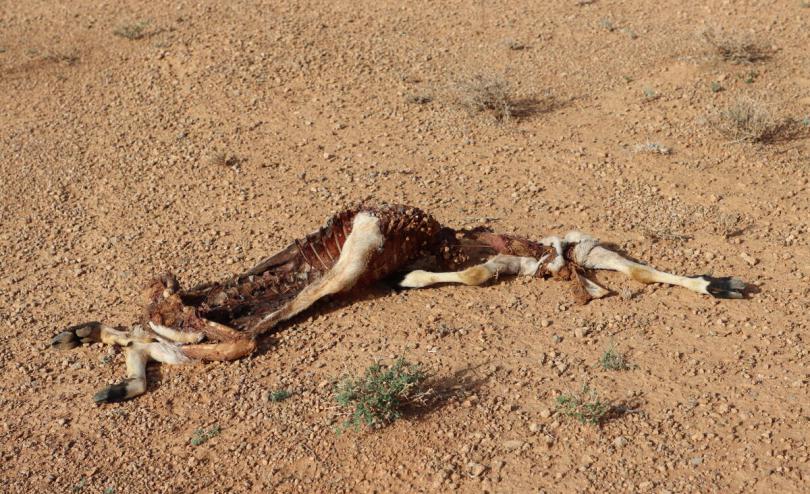
MOGADISHU, 6 June - Somalia’s crippling drought, the worst in at least 40 years, has forced more than half a million people to abandon their homes in search of food and water in the last four months, with mothers terrified they will also lose their children, Save the Children said today.
The country is experiencing its fourth consecutive failed rainfall season with harrowing impacts for families and children, raising fears of a repeat of the 2011 famine that killed over a quarter of a million people- half of them children under five. Experts are warning there is now a credible risk the next rainy season in October – December will also fail, which would further deepen the already severe humanitarian emergency.
With the prolonged drought combined with inadequate humanitarian funding, globally disrupted supply chains, and food prices skyrocketing due to the conflict in Ukraine, mothers in the country are telling Save the Children they are unable to feed their children and fear for their lives.
55-year-old Suad*, a farmer, lives in a camp in the Sanaag region. She arrived at the camp four week ago with her seven children and disabled mother after the drought killed off her livestock.
Suad told Save the Children that the previous drought in 2017 devastated her livestock. At the time, she had 400 cows and goats and was left with just two, although she was able to recover some of them. Now, the drought has left her with almost nothing, and this time she fears she will not be able to salvage what remains of her pastoralist lifestyle.
She said: “The drought has brought despair. I don’t know what will become of us. I can’t feed my family, I feel helpless. How can you provide a living for your children when you’ve lost your livelihood? It’s a very difficult time, we’re all on the move in search of a better life.”
Sitting from across her mother,12-year-old Samia*, said: “If we had rain, life would be so different. I wouldn’t need go out in search of water and I would have more time for my studies.”
The number of new arrivals to camps in Hargeisa from drought affected regions is rising daily, Save the Children said. Saud is among 524,000 people in Somalia who have been forced to abandon their homes in search of food and water in the last four months. Across Somalia, 6 million people are suffering extreme hunger, with over 81,000 living in famine like conditions. The UN estimates that 1.4 million children could be acutely malnourished by the end of this year if the deteriorating situation is not addressed.
As the threat of famine looms, with estimates suggesting as close as next month, the UN warns, an urgent and timely scale up of humanitarian assistance is required to avert death and devastation for families across Somalia.
Mohamud Mohamed, Save the Children’s Country Director in Somalia, said:
“We saw this coming. A two-year drought in Somalia and the Horn of Africa, which has decimated crops and livestock and eroded people’s ability to cope, with mothers having to make the difficult choice of putting their children to sleep hungry. Malnutrition rates among children is on a steady rise and the UN has warned that as many as 350,000 children could die by the summer if we do not act and yet the window of opportunity to act and avert a catastrophe is shrinking with every passing day.
We are calling on governments and the international community to make the right decision and prevent the suffering of millions of people and possible deaths of thousands of people from this climate-induced hunger. A localized response that targets saving lives and livelihoods must be prioritized including supporting local food production, protecting the poorest, and making food affordable.”
Save the Children is working to help affected communities in Somalia to cope with the immediate humanitarian effects of drought. We are providing emergency water supplies, treating children who are malnourished, supporting education systems so that children do not miss vital learning while displaced by drought, running health facilities, and providing cash and livelihood support to the most vulnerable.
